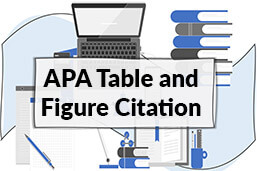
Referencing can be relatively challenging, especially when faced with APA citation missing information, such as the author’s name or publication date. How do you format them correctly in such instances? In this post, we will discuss more regarding APA citation missing information, and provide APA examples to help guide you through the proper formatting. Utilizing these APA examples will give you a clearer understanding of how to approach citations even when some details are absent.
Definition: APA citation missing information
When citing in APA style, you need five components, which include:
- Authors name
- Publication date
- Source title
- Name of the website
- URL
In most cases, sources have all these components, which makes it easier to cite them. However, there are instances where you will miss one or two of them. For instance, your source can have all the other components, but you can’t find the publication date or the author’s name.
In such a case, it is advisable to look carefully since it can sometimes be challenging to find such information. If you still can’t find it, it’s not the end of the world; there are a few ways to handle different combinations of APA citation missing information.
Here is a breakdown of the APA dictionary entry citation format formula:
| APA format formula | Author’s last name, initial. (publication year). Word cited. Editor’s Initials Last name (Ed.), In Name of Dictionary. Publisher. URL |
| APA reference list | Brian, L. (2018). Reserve. J. Santorini (Ed.), In Oxford Dictionary. Oxford Publishing Co. https://www.oxford-dictionary.com/reserve |
| APA in-text citation |
Parenthetical: (Brian, 2018) Narrative: Brian (2018) |
APA citation missing information: In-text citations and reference list entries
Here is how to write in-text references in APA citation missing information:
- Missing author – If the author’s name is missing, you can use a shortened version of the title where you’d normally have the author’s name and proceed with citing the other details.
- Missing date – When citing a source without a publication date (e.g., Wikipedia content), use the initials’ n.d.’ in place of the date.
- Missing page numbers – If the source doesn’t have page numbers (e.g., websites), indicate the paragraph number and write the word ‘para’ before it. For paragraphs with headings, indicate the heading alongside the word ‘section’ and the paragraph number. If the source has only one paragraph, indicate only the author’s name and the year, leaving out the page number.
- No title – If your source doesn’t have a title (e.g., paintings and other visual pieces of art), use a description of the content in square parentheses in place of the title.
| Missing Info | What To Do | APA In-text citation | APA Reference List Entrya |
| No author | Use paraphrased title of the source | (“How to Clean,” 2023) | [How to clean]. (2023). Source URL |
| No date | Use initials “n.d.” in place of date | (Turner, n.d.) | Turner. (n.d.). How to Clean. Source URL |
| No page number | Use paragraph number | (Turner, 2006, para. 2) | Turner (2023) supports the claim (para. 2) |
| No title | Describe work in square parentheses | (Turner, 2023) | Turner. (2023). [How to Clean]. Source URL |
An anonymous author refers to an author whose identity has not been revealed or is unknown. Some authors publish their content anonymously to demonstrate humility or keep their identity secret to avoid judgment from the readers. If you use such a source, APA citation missing information recommends that you use a shortened version of the title in place of the author’s name.
FAQs
For a source without a title, use a short description of the content in square parentheses in place of the title.
If your source has an anonymous author, APA citation missing information recommends that you use a shortened version of the title in place of the author’s name.
APA citation missing information could be one of the five components, including the author’s name, publication date, source title, name of the website and URL.
The formula for APA dictionary entry citation includes the publishing company, year, word, dictionary name, edition, page number, and the URL.
